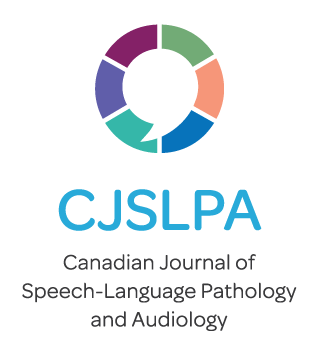

| Author(s) |
Marilyn Dahl, PhD |
| Volume | 21 |
| Number | 3 |
| Year | 1997 |
| Page(s) | 153-159 |
| Language | English |
| Category | |
| Keywords |
hard-of-hearing rehabilitation volunteer |
| Abstract |
It is estimated that between 48 and 97% of residents of continued-care facilities have a hearing impairment. Nursing staff and other care-team members are often not prepared to attend to the hearing-related needs of elderly residents, and many such facilities do not have the regular services of hearing health care professionals. Trained volunteers can fill a valuable role in providing help and support to residents and staff in meeting hearing-related needs of seniors. The To Hear Again project featured consumer involvement in hearing health care. A training program was developed and implemented by a consumer organisation, the Canadian Hard of Hearing Association. The program was designed to prepare hard-of-hearing seniors at four sites across Canada to function as peer role models and helpers to other hard-of-hearing seniors in care facilities and, to a lesser extent, in the community. The project included a model for cooperation between a public health unit and a consumer organisation. Professional measurement tools for observation and self-report were adapted for layperson use in assessing needs. Design of the project, materials used, and outcomes are discussed. Entre 48% et 97% des bénéficiaires des centres de soins prolongés auraient une déficience auditive. Souvent, le personnel infirmier et les autres intervenants ne sont pas prêts à répondre aux besoins auditifs des bénéficiaires âgés et nombre d'établissements ne sont pas desservis régulièrement par des professionnels de la déficience auditive. Des bénévoles bien formés ont un rôle précieux à jouer pour aider et épauler les bénéficiaires et le personnel en répondant aux besoins auditifs des personnes âgées. Le projet < |
| Record ID | 135 |
| Link | https://cjslpa.ca/files/1997_JSLPA_Vol_21/No_03_145-228/Dahl_JSLPA_1997.pdf |
CJSLPA is an open access journal which means that all articles are available on the Internet to all users immediately upon publication. Users are allowed to read, download, copy, distribute, print, search, or link to the full texts of the articles, or use them for any other lawful purpose.
CJSLPA does not charge authors publication or processing fees.
Copyright of the Canadian Journal of Speech-Language Pathology and Audiology is held by Speech-Language and Audiology Canada (SAC). Appropriate credit must be given (SAC, publication name, article title, volume number, issue number and page number[s]) but not in any way that suggests SAC endorses you or your use of the work. You may not use this work for commercial purposes. You may not alter, transform, or build upon this work.